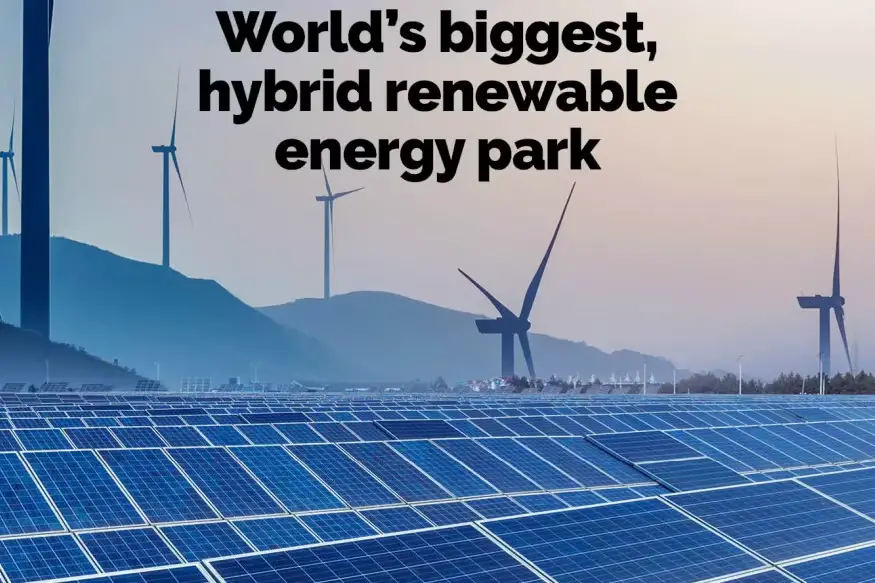Adani Green Energy Ltd (AGEL) is developing the 30 GW Gujarat Renewable Energy Park in Kutch district of India, a hybrid solar and wind power complex spanning about 538 square kilometers. Once fully built, AGEL says it will stand as the world’s largest renewable energy installation by capacity and land area. Adani Group also backs the Khavda project with a Rs. 2.3 trillion investment announced in 2024, adding to AGEL’s Rs. 1.5 trillion for renewable energy and manufacturing capacity by 2030.
World’s Biggest Gujarat Hybrid Renewable Energy Park Project Reaches Significant Milestone
Reported March 18, 2024 – A significant 1,000MW milestone has been achieved for Gujarat Hybrid Renewable Energy Park, the world’s largest renewable energy park with a proposed capacity of 30,000MW.
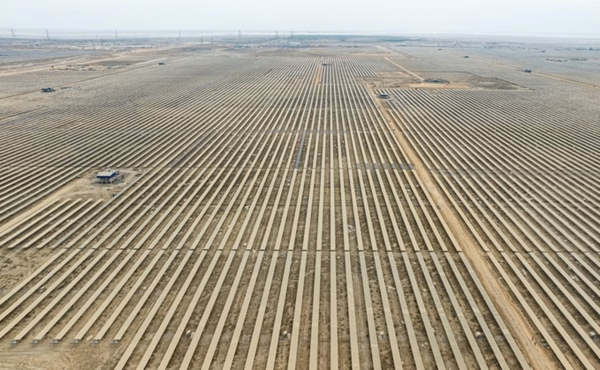
The park, known as Gujarat Hybrid Renewable Energy Park or Khavda Renewable Energy (RE) park is being built on 72,600 hectares (726 km2) near Vighakot village in Kutch district of Gujarat, India. It comprises wind and solar power plants.
1,000MW of the project was recently put into operation by Adani Green Energy Limited (AGEL), India’s largest and one of the world’s leading renewable energies (RE) companies. AGEL is one of the developers of the 30,000MW renewable energy park project.
Other companies include Sarjan Realities and NTPC Limited (formerly National Thermal Power Corporation). Also in the team is Gujarat Industries Power Company, Gujarat State Electricity Corporation and Solar Energy Corporation of India.
AGEL is responsible for the installation of 9,500MW capacity hybrid wind and solar power plants while Sarjan Realities, NTPC, Gujarat Industries and Gujarat State Electricity Corporation are responsible for the installation of 4,750MW; 4,750MW; 2,375MW and 3,325MW capacity hybrid wind and solar power plants respectively.
Solar Energy Corporation on the other hand has been assigned 11,500MW capacity wind power plants.
Development of the 1GW Capacity at World’s Biggest Gujarat Hybrid Renewable Energy Park
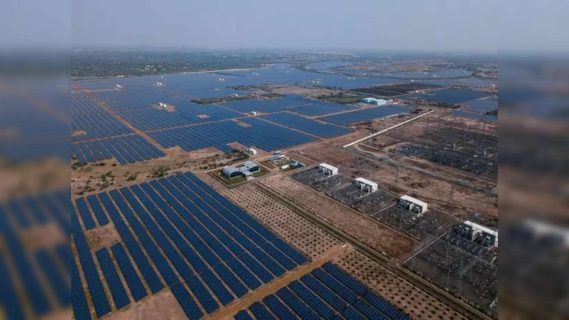
According to reports, AGEL delivered the 1GW capacity in less than 12 months of commencing work at the park. The scope of AGEL’s work comprised the installation of approximately 2.4 million solar modules.
Some of the challenges experienced by AGEL during the construction of the world’s largest renewable energy park included the project site terrain. To address this challenge, according to reports, the project team deployed underground stone columns to enhance the soil strength.
Specialized corrosion-resistant coatings were also used for solar module mounting structures and switchyard equipment. This will enable long-term protection of the plant and equipment in the highly corrosive environment.
The team has also deployed waterless cleaning robots to address dust accumulation on panels. As a result, this approach will increase energy output and help conserve water in the arid Kutch region. Furthermore, the approach contributes to AGEL’s water neutrality goals in line with United Nations Sustainable Development Goal 6.
Speaking on this milestone, AGEL in a statement, said that the accelerated progress underscores her commitment to India’s goal of achieving 500 GW non-fossil fuel capacity by 2030. Furthermore, the operationization of the 1,000MW at Khavda Renewable Energy (RE) park brings AGEL closer to its goal of achieving 45,000 MW by 2030.
Thus far the company has achieved an operational capacity of 9,478 MW.
Letters of Intent for 700 MW Capacity
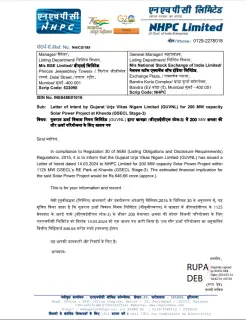
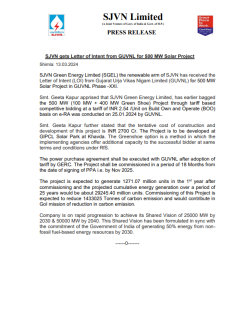
Letter of intent for 500 megawatts and 200 megawatts capacity have also been received. Gujarat Urja Vikas Nigam Limited (GUVNL) and SJVN Green Energy Limited (SGEL) were in talks for the 500MW project. SJVN was formerly known as Satluj Jal Vidyut Nigam.
Gujarat Industries zone at the world’s largest renewable energy park will see to the development of the 500MW project.
NHPC received the 200MW LoI. Gujarat State Electricity Corporation (GSECL) zone will house the development.
Also Read:
Construction of world’s largest renewable energy park begins, India
Nexzu Mobility Proposes Rs 5,000 Crore Investment in Smart EV Park In Gurjat, India.
Larsen & Toubro Awarded 1.8GW Dubai Solar Park Contract: World’s Largest Solar Park
